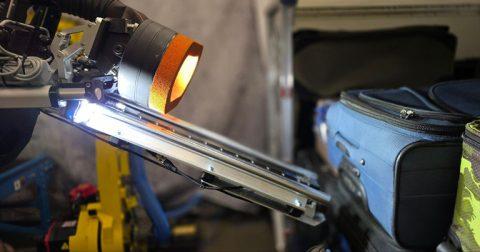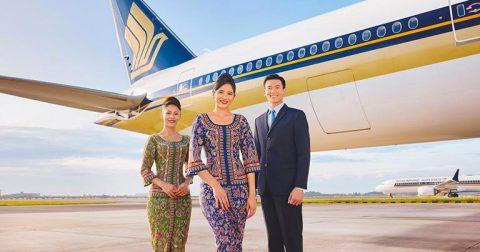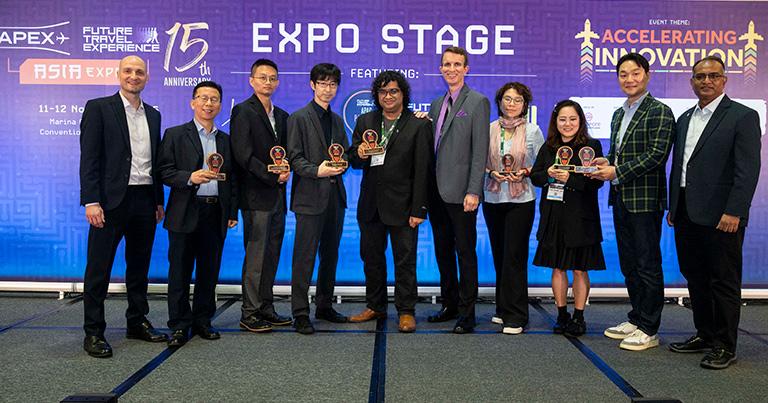

The most pioneering airlines and airports in Asia-Pacific were recognised at the FTE APAC Pioneer Awards 2025 ceremony. The winners were announced on 11 November during APEX FTE Asia Expo 2025 at the Marina Bay Sands Expo & Convention Centre in Singapore. 30 leading airlines and airports from across the region were nominated for pushing the boundaries of innovation, enhancing the customer experience, and playing a vital role in advancing the air transport industry. 10 of the nominees were presented with an ‘Outstanding Achievement’ trophy.
Mark your diary for APEX FTE Expo Asia, Singapore, 18-19 November 2026 >>FTE APAC Airline Pioneer Awards
All Nippon Airways
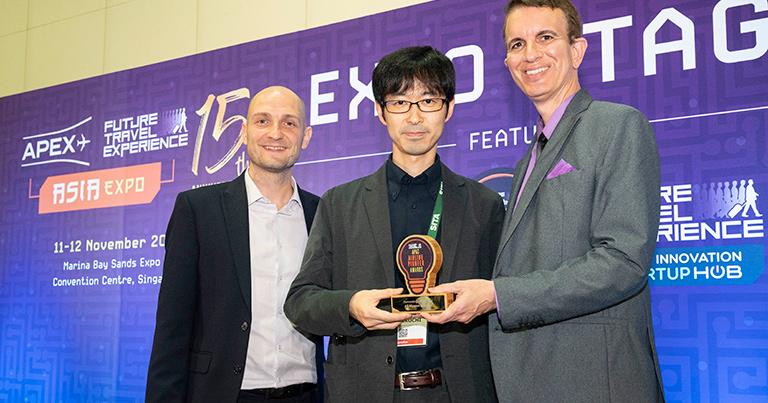
All Nippon Airways (ANA) was recognised for its commitment to smart, seamless, and automated travel experiences through bold digital transformation. As part of the FTE Smart Ramp programme, ANA is testing autonomous towing tractors to streamline cargo operations and improve turnaround efficiency.
To address workforce training and skills gaps, ANA launched ‘∀TRAS (Atlas)’ – Japan’s first VR-based ground-handling training system – providing consistent, accessible learning nationwide. Meanwhile, ANA Smart Travel enhances the passenger journey through mobile-first, contactless technologies from check-in to boarding.
Inflight, ANA redefined premium comfort with THE Room FX Business Class seat on the Boeing 787-9, co-developed with Safran and featuring the world’s largest seat in its class for a mid-sized aircraft.
By combining automation, immersive learning, and passenger-centric design, ANA is transforming every facet of its operations. Its strategic approach to innovation ensures it remains a leading force in redefining efficiency, safety, and comfort for travellers worldwide.
Korean Air
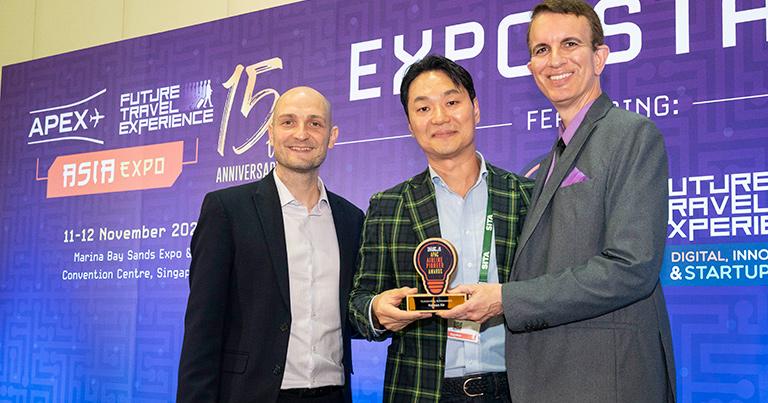
Korean Air was recognised for leveraging artificial intelligence (AI) and cloud technologies to enhance both customer experience and operational excellence. Partnering with Amazon Web Services (AWS), the airline developed an AI Contact Center platform powered by machine learning and generative AI, providing responsive, personalised support through intelligent voice bots and chatbots.
To embed digital capability across the organisation, Korean Air launched the AWS Innovation Builder Program, training over 500 employees in cloud technologies and fostering collaboration between business and tech teams.
The airline is also expanding into autonomous aviation, partnering with Anduril Industries to co-develop AI-driven unmanned aerial systems for Korea and the wider Asia-Pacific region.
Through strategic partnerships, workforce upskilling, and a forward-thinking approach to automation, Korean Air is reshaping the future of flight – uniting data, AI, and innovation to deliver smarter operations, stronger resilience, and exceptional customer experiences.
Cathay Pacific

Cathay Pacific is driving a major digital transformation to deliver more choice, control, and personalisation across every touchpoint. In 2025, the airline launched Cathay Technologies, a new subsidiary dedicated to scaling its digital capabilities and co-investing in high-potential startups with Hong Kong Science & Technology Park under the Co-Acceleration Programme Fund.
Cathay is advancing conversational AI to create more intuitive customer interactions, while enhancing the travel experience with seamless booking, contactless boarding, and complimentary high-speed WiFi for premium passengers.
A collaboration with SITA (a Corporate Partner of the FTE Digital, Innovation & Startup Hub) introduces SITA Connect Go across 51 airports, boosting connectivity and enabling cloud-based operations. The airline’s new Digital and IT Campus in Shenzhen further accelerates R&D, innovation, and collaboration across teams.
Cathay’s transformation is more than digital optimisation; it represents a cultural shift toward agility, scalability, and customer-led innovation. Through visionary investments and partnerships, Cathay Pacific is setting a new benchmark for smart, connected, and future-ready aviation.
AirAsia
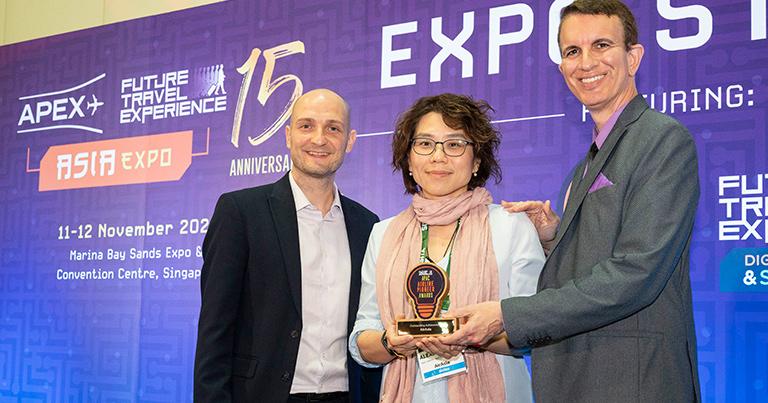
AirAsia was recognised for transforming the end-to-end travel experience through digital innovation, operational excellence and the collective drive of its ‘Allstars’. In addition to elevated service onboard, and flexible ancillary offerings, automation and digital enhancements being made continue to raise the bar.
Today, via the AirAsia MOVE app, guests can manage every aspect of their journey seamlessly, from booking flights, seats and add-ons to receiving real-time updates and accessing breakthrough features such as Auto Visa Check (AVC) for automated visa validation, Open Baggage Belt for self-tagging and bag drop, and Self Move Flight (SRO) for automatic flight changes during disruptions.
As AirAsia continues to grow, the carrier is reimagining travel through smarter design and integrated systems that simplify journeys for guests while transforming how its teams work behind the scenes. With innovations like ‘Red App’ – its new mobile departure control system, AirAsia is empowering its staff to work faster and more seamlessly, be it internally or with external stakeholders, to further improve the guest experience whilst stepping up operational excellence.
Singapore Airlines
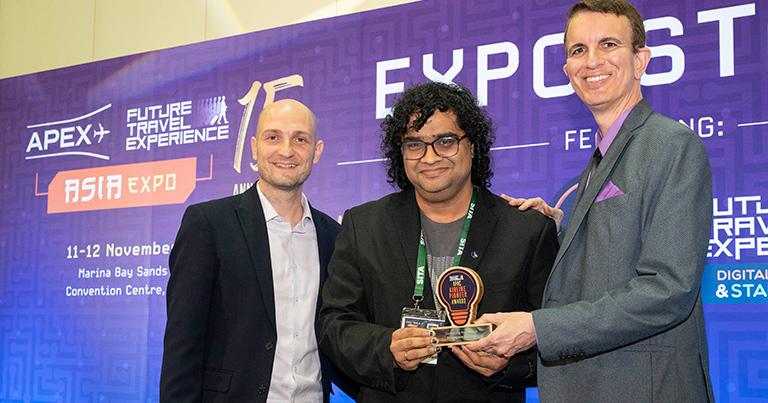
Singapore Airlines was honoured for embedding responsible artificial intelligence (AI) at scale across its business. Since launching its enterprise AI strategy in 2022, the airline has deployed over 80 use cases – from intelligent flight planning to customer engagement – in line with Singapore’s Infocomm Media Development Authority (IMDA) guidelines.
In 2024, the world’s first GenAI-powered Flight Recommender enabled natural-language itinerary planning, saving travellers thousands of hours daily. Proprietary AI tools optimise fleet allocation, automate case handling, and enhance engineering diagnostics, generating over US$2.7 million in annual business value.
The in-house GenAI platform Jarvis supports innovation at scale, while staff training through the SMARTbot simulation platform and AI education programmes ensure wide adoption.
Partnerships with OpenAI, Salesforce, IMDA, and A*STAR reinforce Singapore Airlines’ leadership in ethical AI and aviation cybersecurity. By democratising AI and focusing on tangible business outcomes, Singapore Airlines is not just innovating – it is defining the global standard for responsible, intelligent aviation.
FTE APAC Airport Pioneer Awards
Incheon International Airport Corporation
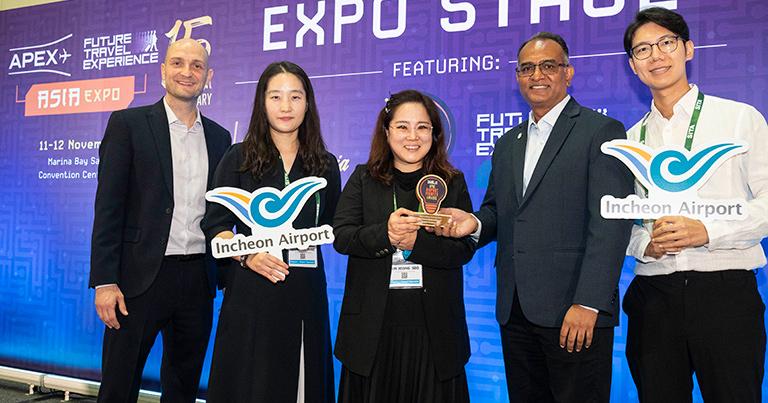
Incheon International Airport Corporation was recognised for its bold airport-wide digital transformation, centred on automation, biometrics, and artificial intelligence (AI) to deliver faster, more intuitive passenger journeys. Its Fast Travel programme reimagines the end-to-end experience through biometric self-check-in, automated bag drops, and e-gates, allowing travellers to move hands-free through the terminal.
Looking ahead, Incheon is advancing the One ID initiative with international partners, enabling passengers to travel across multiple airports using a single biometric identity – removing repetitive checks and setting a new global standard for seamless, interoperable travel.
AI and robotics are also transforming operations. One standout initiative is BOOST – a robotics-led transformation of baggage handling. In partnership with the FTE Baggage Innovation Working Group (BIWG), Incheon is deploying Doosan Robotics to automate the handling of heavy and odd-sized baggage. This significantly reduces manual workload and enhances operational efficiency.
Enhancing engagement beyond automation, Incheon has introduced a Metaverse-based indoor wayfinding service using 3D spatial data and Augmented Reality (AR) to guide passengers through complex terminals.
Through smart technology, collaborative experimentation, and a relentless focus on passenger experience, Incheon International Airport is positioning itself as a global trailblazer for next-generation, digitally connected travel.
Japan Airport Terminal Co., Ltd
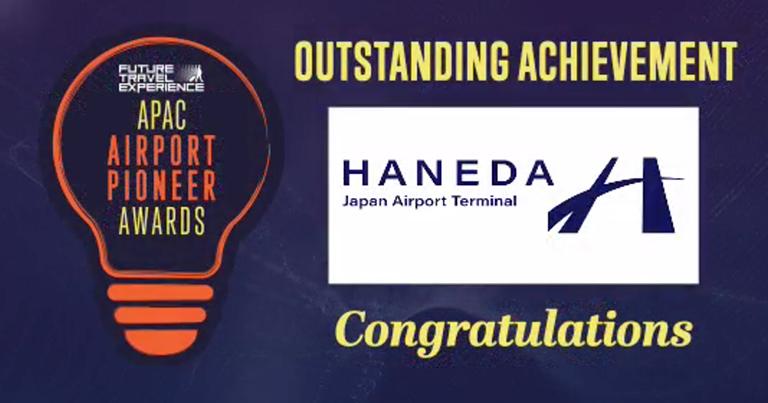
Japan Airport Terminal, the company responsible for the construction, management, and operation of Haneda Airport’s terminals, is redefining the future of aviation through its ambitious “terminal.0 HANEDA” initiative. This visionary programme represents a bold, cross-industry collaboration to transform the airport experience through cutting-edge technology, sustainability, and innovation.
Set for a major rollout by 2026, “terminal.0 HANEDA” integrates artificial intelligence (AI), robotics, biometrics, the Internet of Things (IoT), and automation to create a seamless and efficient passenger journey. AI-driven systems will optimise staffing and resource allocation based on predicted passenger flow, while robotics and automation will streamline baggage handling and other operational processes. Facial recognition and biometric tools will support touchless check-in, security, and boarding, significantly enhancing convenience and efficiency.
Sustainability is a cornerstone of the initiative. Japan Airport Terminal is introducing green technologies such as solar power, energy-efficient infrastructure, and advanced waste reduction systems.
What sets this initiative apart is its collaborative approach. Japan Airport Terminal is working closely with tech companies, startups, and aviation stakeholders to co-develop scalable innovations that can be adapted by airports worldwide.
Changi Airport Group
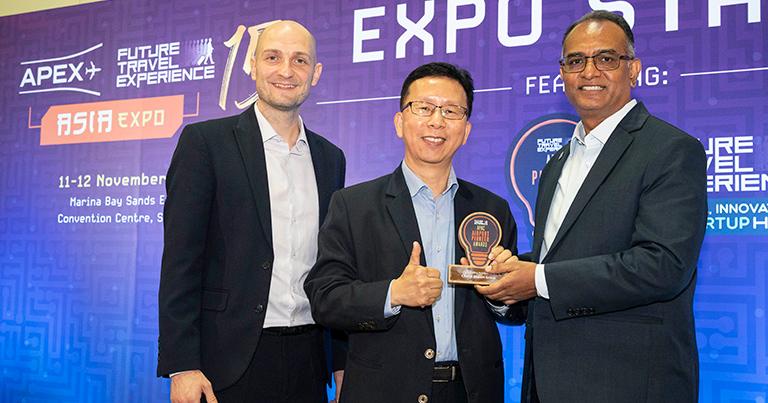
Changi Airport Group (CAG) was recognised for accelerating digital transformation through its in-house innovation hub – DIVA, which stands for Digital, Innovation, Ventures, and Analytics. It is reimagining airport operations and the end-to-end traveller experience through cutting-edge digital solutions.
Under the SMART Airport Vision, Changi is leveraging artificial intelligence (AI), automation, data analytics, and immersive technology to build a future-ready airport experience. Key innovations include AI-driven security screening that enhances threat detection and reduces wait times; biometric self-service for check-in, bag drop, immigration, and boarding; and Extended Reality (XR) environments that elevate passenger engagement.
Internet of Things (IoT) and edge computing systems deliver real-time operational insights, supporting predictive maintenance and smarter infrastructure management. Advanced analytics also forecast passenger flow to improve crowd control and resource deployment. Sustainability remains integral to DIVA’s mission, with data-driven systems optimising energy use and supporting Changi’s long-term carbon goals.
Importantly, DIVA’s reach extends beyond the terminal. Through new digital touchpoints, Changi engages passengers before they arrive and after they depart, creating a continuously connected travel experience.
By combining deep technological capability with human-centred design, Changi Airport Group is redefining what a modern airport can be – smart, seamless, sustainable, and truly world-leading.
Narita International Airport Corporation
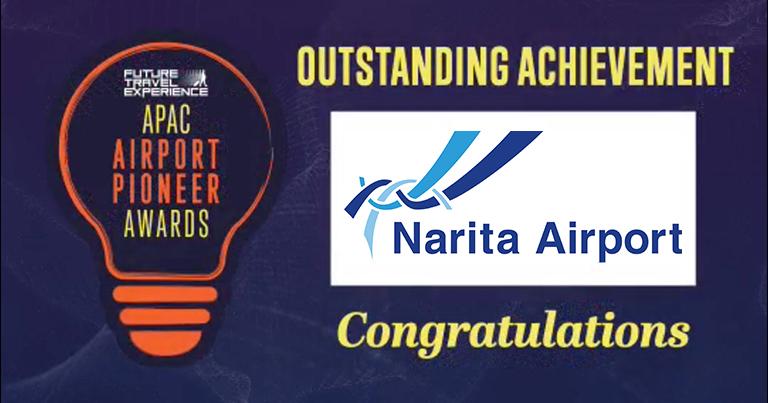
Narita International Airport is undergoing a major digital transformation through its visionary ‘AIR Narita’ programme, which unifies multiple systems into a single, intelligent operational platform. This foundation supports greater efficiency, agility, and sustainability across the airport’s entire ecosystem.
Narita is leading Japan’s innovation in smart travel through the country’s first fully end-to-end biometric boarding process, allowing passengers to complete check-in, security, and boarding without physical documents. Complementing this, BEBOT, an AI-powered multilingual chatbot, provides real-time passenger support and information, while driverless vehicles and predictive analytics optimise airside logistics and maintenance.
Participation in IATA’s Fast Travel initiative reflects Narita’s commitment to frictionless, touchless journeys, supported by automation and AI-based customer service. Importantly, these technologies are being designed to enhance human interaction, enabling staff to deliver more personalised service through intelligent support systems.
Narita is also a founding member of the Airports for Innovation network, a coalition of 10 global airports co-developing next-generation passenger experience solutions. Its recent joint Call4Startups is helping identify disruptive ideas that will shape the airport of the future.
Through bold digital integration, strategic partnerships, and a human-centric approach to innovation, Narita International Airport is setting a global benchmark for smart, sustainable, and connected travel experiences.
Airport Authority Hong Kong
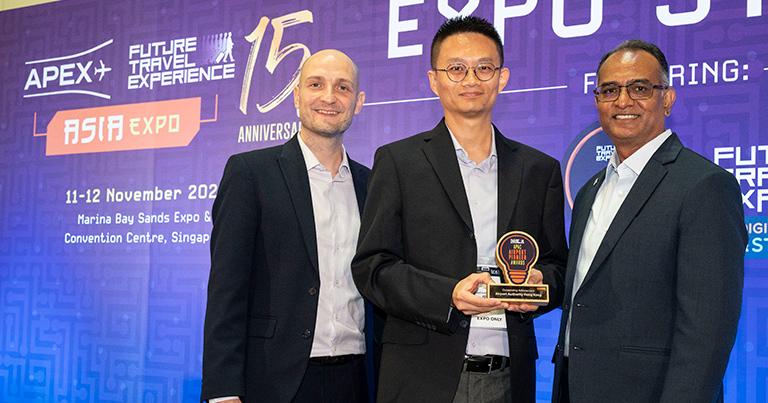
Hong Kong International Airport (HKIA) is leading a global transformation through its world-first, end-to-end standalone private 5G network, establishing a powerful digital foundation for its evolution into a smart ‘Airport City’. Developed by Airport Authority Hong Kong (AAHK), the shared Enterprise 5G Infrastructure supports both public 5G services and HKIA’s private network, reducing costs and physical footprint while enabling over 50 high-impact applications across operations.
Key innovations include 5G-connected autonomous vehicles, robotic charging, cloud-based smart kiosks, and facial-recognition systems enhancing security and efficiency. Internet of Things (IoT)-enabled systems now monitor structures, baggage, and equipment in real time to enable predictive maintenance, while 5G robots handle apron line-marking tasks.
AAHK is also extending 5G capabilities to airport partners, driving community-wide innovation and collaboration.
By integrating mobility, connectivity, and automation, HKIA has become a global benchmark for next-generation airport infrastructure – a model for how advanced networks can power safer, smarter, and more sustainable aviation.
Mark your diary for APEX FTE Expo Asia, 18-19 November 2026, Singapore
In Asia, we’re building on 15 years of incredible momentum, as our long-running regional show evolves into a true global mega event with the launch of the unified APEX FTE Expo Asia, bringing together two of the industry’s most respected brands under one roof at Marina Bay Sands. For the first time, APEX will bring its largest event, APEX Global EXPO, to Singapore, combining its unrivalled customer experience heritage with FTE’s long-established regional innovation APAC event, which will now take on a broader global focus.
This powerful new collaboration will unite the world in Singapore for the largest end-to-end passenger experience and innovation expo, connecting airline, airport, and technology leaders from across APAC and beyond to showcase the ideas, solutions, and partnerships redefining the future of travel.
With more than 3,000 participants expected, including representatives from 100+ airlines and airport operators from around the world, attendees will experience a dynamic exhibition and conference programme featuring C-suite interviews, case studies, and discussions exploring the strategies, technologies, and collaborations driving the next era of air transport innovation.
Mark your diary for APEX FTE Expo Asia, Singapore, 18-19 November 2026 >>
